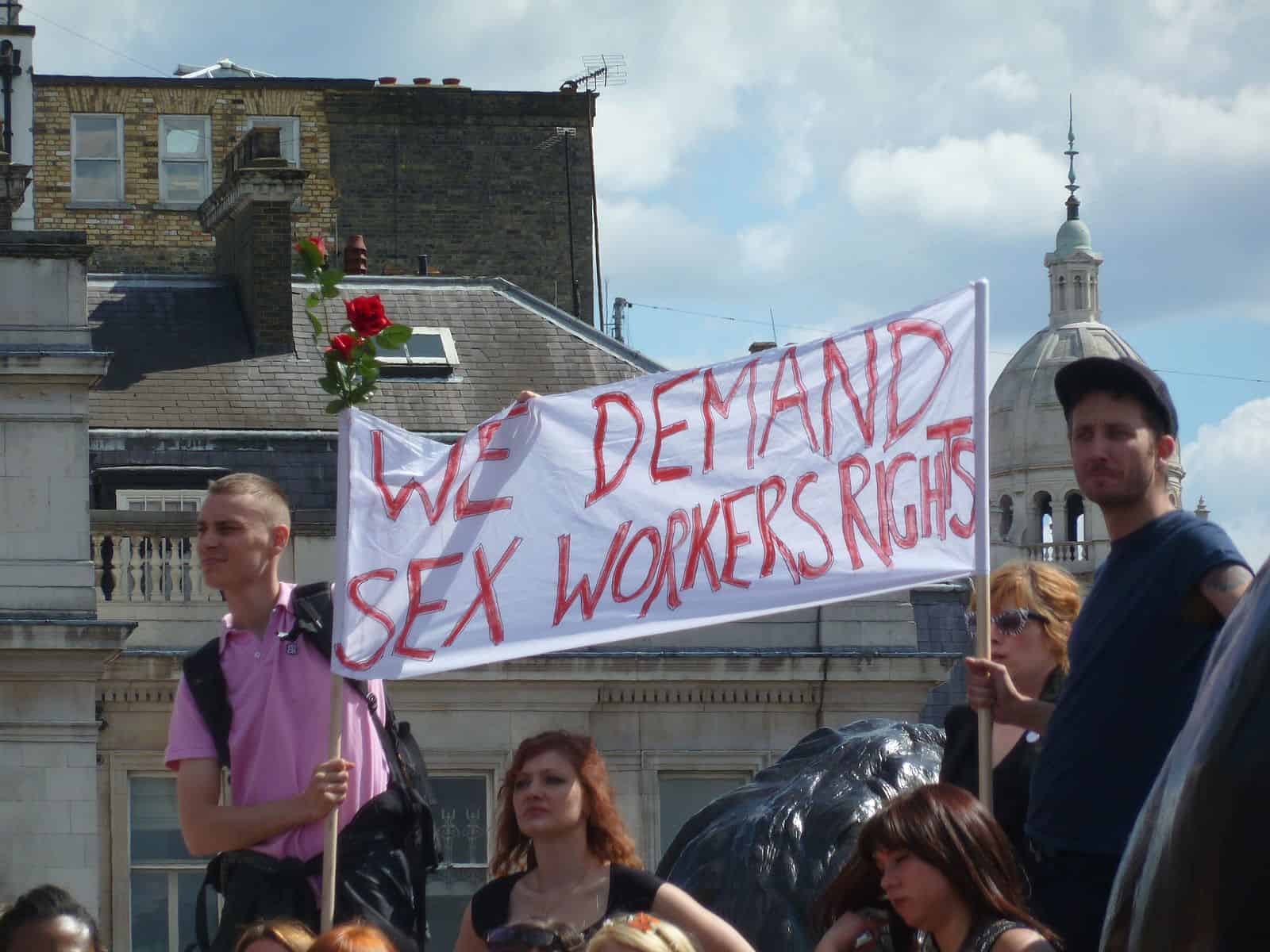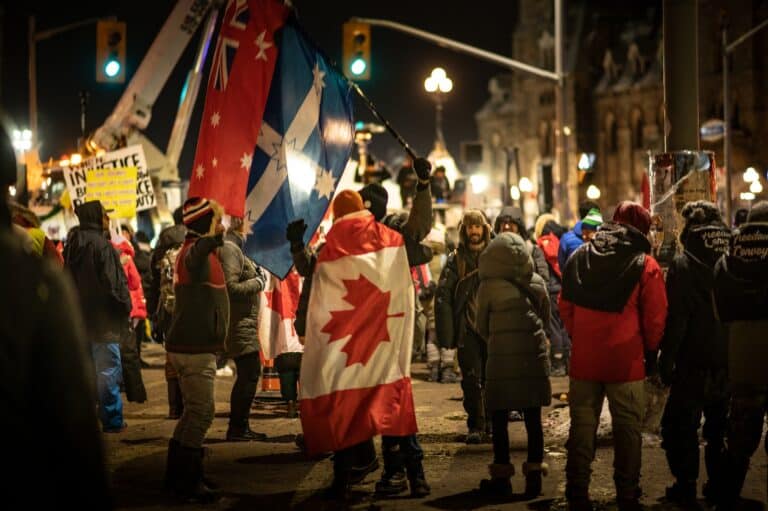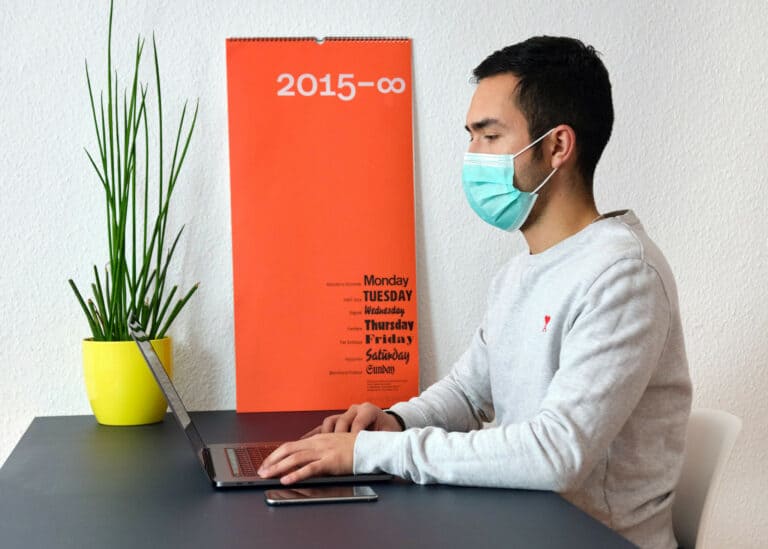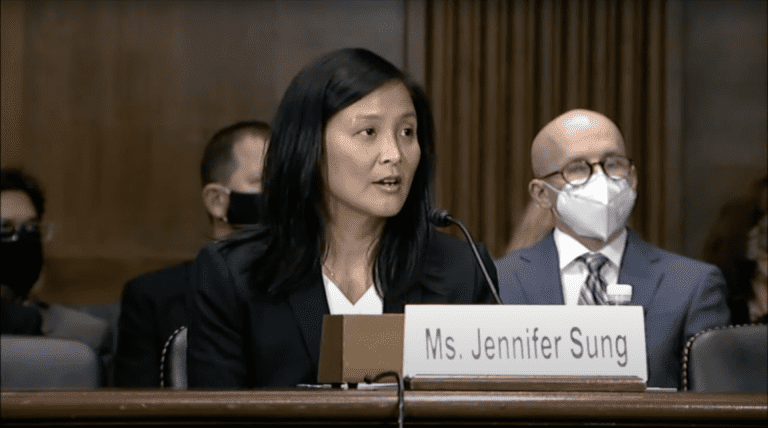
Tara Boghosian is a student at Harvard Law School and a member of the Labor and Employment Lab.
As the pandemic wreaks havoc on the health system and economy, it has become clear exactly how precarious so much work is, from laid off restaurant workers to empty Ubers and Lyfts. The Coronavirus Aid, Relief, and Economic Security (CARES) Act offers some assistance to out-of-work employees, independent contractors, and self-employed workers. Yet, the Act’s benefits remain inaccessible to some of the most vulnerable workers—those engaged in sex work. Far from being an oversight, this exclusion is an extension of the more general criminalization of sex work, and it puts many sex workers in a cruel position where they have to continue working during this pandemic in order to survive. Regardless of one’s views on sex work, making COVID-19 relief clearly available to sex workers is necessary as a matter of public health—and I would argue, so is decriminalizing sex work more generally.
Despite being illegal everywhere in the U.S. except for a few counties in Nevada, there are an estimated 1-2 million full-service sex workers in the United States, and more who engage in other types of sex work. People do sex work for many reasons, including non-coercive ones. However, limited job opportunities; discrimination on the basis of race, sexual orientation, or gender identity; poverty; and an insufficient social security net are common factors that push people toward sex work, especially survival sex work.
During the COVID-19 pandemic, sex workers face a catch-22. Whether or not they continue to work, their survival is at risk. With decreasing demand for in-person services due to the pandemic, sex workers’ livelihoods suffer. However, sex workers face unique obstacles to obtaining relief under the CARES Act.
First, as commenters like Jacqueline Francis have identified, all legal sex-related businesses—such as the brothels in Nevada and strip clubs across the country—are expressly excluded from the Small Business Administration’s (SBA) loan programs intended to help businesses maintain payroll during the pandemic. This exclusion harks back to SBA regulations that were promulgated under the Clinton administration in 1995, which refuse assistance to businesses engaged in “lawful activities of an obscene, pornographic or prurient sexual nature.” But exotic dancers and Nevada’s legal sex workers have other options for assistance, depending on how they are classified. Individual employees remain eligible for unemployment insurance, and independent contractors and self-employed workers are now eligible for Pandemic Unemployment Assistance.
In contrast, criminalized sex workers face practical barriers in accessing Pandemic Unemployment Assistance. They may avoid applying out of fear of attracting scrutiny of their income source and potential criminal investigation. Further, many may be unable to meet the documentation requirements necessary to establish eligibility, such as filing a tax return. While many sex workers do file taxes and there are strong incentives for doing so, others are reluctant, again out of fear that their information may be turned over to law enforcement. Further, survival sex workers who are most in need of economic aid often cannot keep a paper trail of their earnings and may lack basic documents like social security numbers. And of course, undocumented sex workers—like undocumented workers generally—are categorically excluded for now.
In light of the limited relief available, some sex workers have turned to remote options like camming to support themselves, and even the New York State Department of Health has suggested “video dates” as an alternative to in-person sex work. Yet, this option requires access to a computer, camera phone, internet, and private space; and also requires that the person be comfortable recording themselves. Further, for those without a preexisting online client base, this work is less lucrative than in-person services—especially with a newly saturated market. Mutual aid networks and emergency funds are helping to fill the gap for sex workers who have lost income but are not enough. As a result of these limited options, many sex workers are compelled to continue providing in-person services.
Continuing in-person services during the COVID-19 pandemic creates acute health risks for sex workers, which quickly become community risks. It goes without saying that jurisdictions across the country have implemented social distancing policies and stay-at-home orders. If sex workers find themselves in a position where they must continue to provide in-person services in order to survive, it becomes impossible for sex workers to comply with these policies. In turn, their risk of contracting and spreading COVID-19 increases. By excluding sex workers from economic relief, governments undermine their own efforts to flatten the curve.
Sex workers who must continue to provide in-person services risk serious health threats beyond COVID-19. Sex workers also face heightened risks from STDs/STIs. Sex workers report that waning demand for sexual services as a result of the pandemic and economic recession has led the remaining clients to take advantage of their increased bargaining power to demand riskier acts, including unprotected sex, for less pay. In turn, decreased accessibility of sexual and reproductive health services during the pandemic deepens STD/STI-related risks.
Evidently, sex workers are in a position in which they must choose between foregoing basic necessities and putting themselves at increased risk of COVID-19 and sexually transmitted conditions. This untenable choice is a direct result of the way COVID-19 relief efforts both expressly and implicitly exclude sex workers. Given efforts across the country to flatten the curve, it is both an individual and collective injustice that lawmakers have put these workers in a position in which they have to engage in risky nonessential work in order to survive.
Yet, as Laura LeMoon has written, marginalization of sex work is not new, falls hardest on survival sex workers, and will not go away once the COVID-19 curve flattens. Consistently, where sex work is criminalized, sex workers experience increased incidence of STD/STIs including HIV; increased violence; harms resulting from criminal system involvement; reduced bargaining power with clients; and negative mental health impacts from all of the above. Further, a criminal record is an additional hurdle for those trying to enter the formal economy.
Decriminalization, in contrast, is associated with less STDs/STIs, violence, and criminal system involvement. This has led decriminalization campaigns to gain mainstream traction in the U.S. A January 2020 poll suggests that a majority of voters support decriminalization of sex work, which means that democratic justifications for sex work criminalization are no longer viable. The current pandemic has only emphasized how decriminalization is necessary, both as a matter of justice for sex workers and sound public health policy.
So, what should be done? In the short term, federal and state governments should follow jurisdictions like Bangladesh, Japan, and the Canadian province of British Columbia in clearly making sex workers eligible for COVID-19 economic relief. This may require not only naming sex workers as being eligible for relief, but relaxing documentation requirements and ensuring that sex workers cannot be targeted for criminal prosecution as a result of applying for benefits. Beyond the current crisis, lawmakers need to listen to sex workers and the majority of voters who support decriminalizing sex work. Finally, policies that further strengthen the social safety net will give sex workers, like all workers, more ability to choose to engage in their work only under safe conditions.










Daily News & Commentary
Start your day with our roundup of the latest labor developments. See all
July 3
California compromises with unions on housing; 11th Circuit rules against transgender teacher; Harvard removes hundreds from grad student union.
July 2
Block, Nanda, and Nayak argue that the NLRA is under attack, harming democracy; the EEOC files a motion to dismiss a lawsuit brought by former EEOC Commissioner Jocelyn Samuels; and SEIU Local 1000 strikes an agreement with the State of California to delay the state's return-to-office executive order for state workers.
July 1
In today’s news and commentary, the Department of Labor proposes to roll back minimum wage and overtime protections for home care workers, a federal judge dismissed a lawsuit by public defenders over a union’s Gaza statements, and Philadelphia’s largest municipal union is on strike for first time in nearly 40 years. On Monday, the U.S. […]
June 30
Antidiscrimination scholars question McDonnell Douglas, George Washington University Hospital bargained in bad faith, and NY regulators defend LPA dispensary law.
June 29
In today’s news and commentary, Trump v. CASA restricts nationwide injunctions, a preliminary injunction continues to stop DOL from shutting down Job Corps, and the minimum wage is set to rise in multiple cities and states. On Friday, the Supreme Court held in Trump v. CASA that universal injunctions “likely exceed the equitable authority that […]
June 27
Labor's role in Zohran Mamdani's victory; DHS funding amendment aims to expand guest worker programs; COSELL submission deadline rapidly approaching